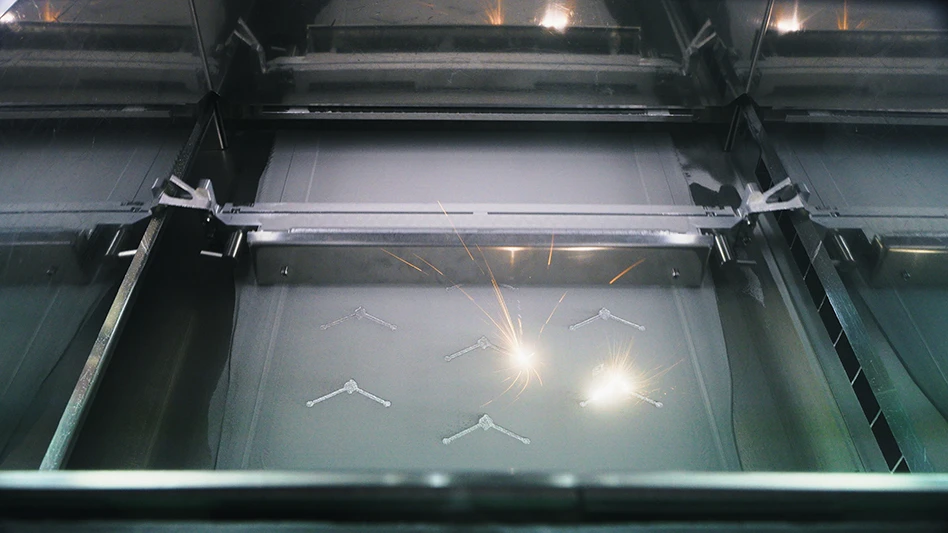
Timing and efficiency are critical in surgical procedures, requiring a surgeon’s acute responsiveness and refined sense of touch that takes years of education and training to achieve. However, practicing first is not always an option. Chapel Hill, North Carolina-based KindHeart surgical simulators offer a solution, allowing surgical teams to perform procedures while ATI’s force/torque (F/T) sensors capture feedback from forces exerted on a patient.
The high-tech simulators feature realistic tissue perfused with a blood-like substance, a heartbeat, and other vital signs that must be monitored during procedures. KindHeart can also simulate an adverse event, such as a heart attack during a procedure, improving the surgeon’s ability to react in real-time, and the procedure can be interrupted at any time.
The simulator gives real tool-to-tissue experience for surgeons-in-training while providing continuous feedback, a capability that developed from close collaboration with development partner Touchstone 3D of Cary, North Carolina.

Sensors for biomechanics
Touchstone’s team configured a dual-sensor setup for these devices – a larger ATI Delta sensor mounted within the thoracic cavity of the mannequin, and a smaller ATI Mini40 sensor mounted underneath the tissue cartridge. This design allows measurement of the forces at the focal point of surgery, as well as feedback from the forces of the surgical apparatus as it goes through the body wall.
KindHeart Co-founder and President, Andy Grubbs, says, “Both ATI sensors are solidly connected to a MIC-6 datum plane and we have achieved surprising separation of the signals, yielding useful data.”

Using two sensors, the device gives a comprehensive look at the biomechanical effects of surgery. The forces upon the body where the tool enters are greater and require a sensor with a larger range, while contact at the focal point will produce forces that are best captured with a smaller, fine-resolution sensor. ATI’s F/T sensor family’s selection of sensor sizes accommodates the different levels of force measurements. The Delta and Mini40 sensors are IP65 rated to guard against dust and liquid spray, or in this instance, fluids from simulated surgery. The high accuracy and fine resolution of Delta and Mini40 F/T sensors measure forces and torques produced during surgery and enable rich, high-quality data to be gathered directly.
Despite the sensors’ proximity, they provide clear, distinct feedback signals with low noise, and they enable a vantage point from the patient side. So far, users have found that a patient’s body mass index (BMI) impacts the forces exerted on the patient during surgery. They are also getting a better picture of how the ribs twist and torque during the procedure.
KindHeart simulators will bring healthcare professionals closer to understanding exactly what patients experience during a procedure, developing better ergonomics and reaction time, which ultimately make for faster, more efficient procedures. The simulators can also help surgeons better prepare patients for surgery and what to expect in terms of post-operative pain and recovery time.
From a practical standpoint, data from simulated surgeries standardize procedures and define best practices for adjusting methods and techniques for different types of patients.
As robotic surgeries increase, KindHeart simulators become an essential tool to increase proficiency; devices are reusable and provide a sustainable training option for surgical robots. The patient-mannequin’s body, with the F/T sensors installed, is a permanent fixture, but the tissue cartridges are replaceable. Since ATI’s F/T sensors are designed for repeat measurements throughout millions of cycles; have high overload protection; and deliver accuracy, stiffness, and resolution; teams using KindHeart’s sensored simulators can have confidence their system will work reliably for years.
KindHeart developed a realistic model for surgical training that emulates human behavior and offers users a rich experience; ATI’s F/T sensors provide those models with the ability to feel. With its diverse capabilities and sustainability, the sensored simulator is the ideal tool to improve proficiency, ergonomics, and best practices for surgeons, teams, and surgical robots.
ATI Industrial Automation
http://www.ati-ia.com

Explore the November December 2018 Issue
Check out more from this issue and find your next story to read.
Latest from Today's Medical Developments
- HERMES AWARD 2025 – Jury nominates three tech innovations
- Vision Engineering’s EVO Cam HALO
- How to Reduce First Article Inspection Creation Time by 70% to 90% with DISCUS Software
- FANUC America launches new robot tutorial website for all
- Murata Machinery USA’s MT1065EX twin-spindle, CNC turning center
- #40 - Lunch & Learn with Fagor Automation
- Kistler offers service for piezoelectric force sensors and measuring chains
- Creaform’s Pro version of Scan-to-CAD Application Module





